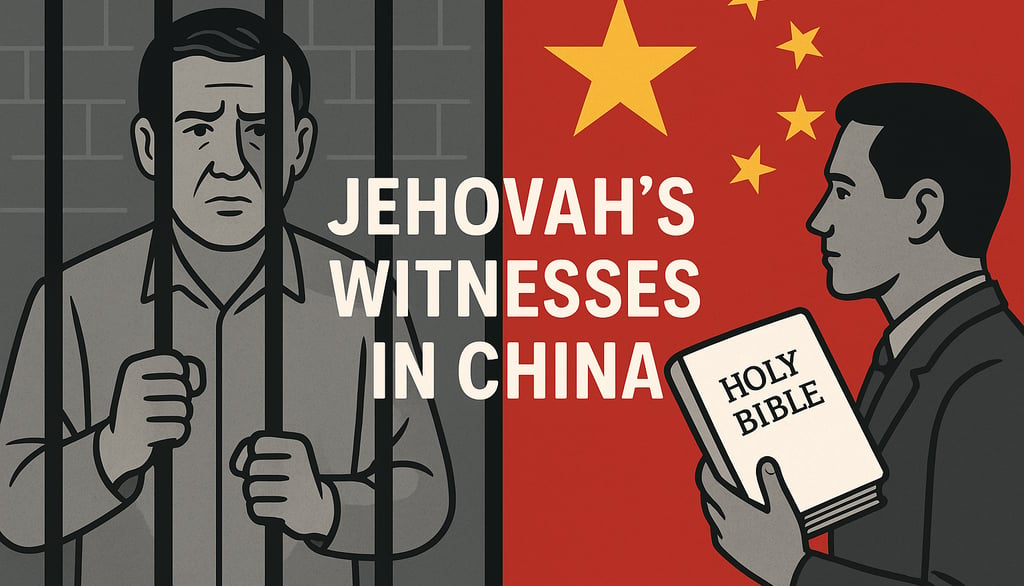Why Does JW.org Stay Silent About Jehovah's Witnesses in Chinese Prisons?
A closer look at the calculated silence around Jehovah’s Witnesses imprisoned in China — and what it reveals about the organization’s priorities, strategy, and contradictions in its persecution narrative.
X-PANDED
Oliver
4/23/20252 min read


On its official page titled "Jehovah’s Witnesses Imprisoned for Their Faith—By Location", the Watch Tower organization highlights cases of Witnesses imprisoned around the world. The page gives the impression of transparency and concern for religious freedom. Yet curiously absent from this list is any mention of Jehovah's Witnesses imprisoned in China.
This omission becomes even more puzzling when contrasted with reports like this one from Bitter Winter: 18 Jehovah’s Witnesses Sentenced to Years in Jail in Xinjiang. That article details how 18 Witnesses were given sentences ranging from 2 years to 9 years for their religious activities. And it's not the first such report.
So why doesn't JW.org acknowledge this?
1. Strategic Silence to Protect Their Presence
Jehovah's Witnesses operate illegally in China. They are not officially recognized as a religion and are categorized as a "xie jiao" (cult) under Chinese law. Public acknowledgment of arrests or coordinated activity would amount to an admission of underground operations.
By remaining silent, Watchtower avoids drawing further attention to its members and any informal or covert evangelism happening in China. It's a move to protect its presence — however fragile — from being obliterated.
2. Avoiding Diplomatic Fallout
Unlike Russia, where Watchtower has gone head-to-head in legal battles and taken their case to the European Court of Human Rights, China is too big to poke.
Openly criticizing China might:
Escalate persecution
Trigger a complete crackdown
Hurt any remaining channels of communication the organization may have within the country
So the organization opts for non-confrontation — even if it means leaving its imprisoned members invisible.
3. Narrative Control and Legal Distance
There may also be a calculated legal reason for the omission. Since the Witnesses in China are not officially connected to any legal branch (there is no recognized branch in China), the organization can distance itself by claiming these are simply individuals practicing their beliefs.
This allows Watchtower to:
Avoid accountability
Deny coordinated activity
Sidestep scrutiny from international observers
4. The Bigger Picture: Selective Transparency
This isn't the only time the organization has been selective in its portrayal of persecution. JW.org tends to highlight cases in:
Western-aligned democracies (to appeal to Western audiences)
Countries with unfavourable reputations (like Russia or Eritrea)
But it rarely challenges authoritarian powers where it still hopes to operate covertly or maintain some foothold.
Witnesses are constantly told that persecution is not only expected but proof they belong to the true religion. Yet, while JW.org loudly documents cases in Russia or Eritrea, it stays silent about China. Why the double standard? If persecution is part of God’s plan, why hide it in some cases and amplify it in others? The answer isn’t spiritual — it’s strategic. And that reveals more about Watchtower's human reasoning than divine guidance.
The silence about China on JW.org isn't an oversight. It's a strategy — one that prioritizes organizational self-preservation over the visibility or support of its imprisoned members.
It raises the question: Who is the persecution narrative really for?
